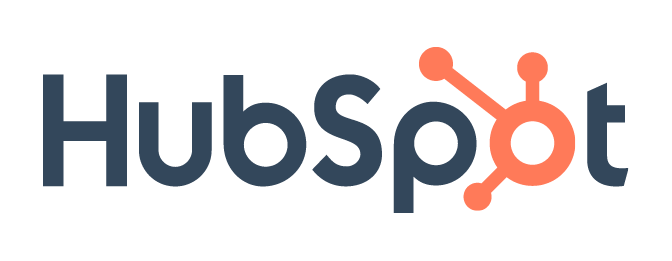Key Takeaways
- HubSpot offers more advanced features than Zoho, but you need to upgrade to significantly more expensive plans to get access to these features.
- Zoho’s feature set is slightly less advanced than HubSpot, but its more affordable pricing plans mean it is a more realistic choice for small to medium-sized businesses.
Spend just a few minutes searching for the best customer relationship management (CRM) software, and the Zoho vs. HubSpot debate will undoubtedly come up. Indeed, many companies narrow their final CRM selection to these two contenders.
Both HubSpot and Zoho CRM offer lead management, automation, and reporting and analytics. And since they offer many similar CRM features, it can be tough to choose between the two CRM platforms.
In this guide, we’ll compare them to each other and dive deep into these essential features to help you make the right choice for your business and customer relations.
In this article...
Zoho vs. HubSpot Feature Comparison
On the surface, when comparing Zoho and HubSpot, it may seem as if they offer similar features — and they do. However, once you start digging deeper, you’ll realize these CRM solutions are far from identical. Keep reading to see exactly how Zoho and HubSpot compare.
 |  | |
|---|---|---|
| Lead Management | Yes | Yes |
| Automation | Yes | Yes |
| Reporting | Yes | Yes |
What HubSpot CRM Offers
HubSpot is most well-known for its forever-free CRM software, but this offers limited functionality. To get the most out of the platform, you will need to upgrade to a paid plan. For the purposes of a fair comparison, we will be considering the paid versions of HubSpot, which is a more comparable platform to Zoho.
HubSpot’s CRM is included as part of its Sales Hub package, which has a reasonable starting price of $45 a month for two users and a small selection of features. If you want more functionality, the HubSpot Sales pricing plan then jumps up to a minimum of $450 a month for five users with the Professional Plan and $1,200 a month for 10 users with the Enterprise Plan.
HubSpot Sales Hub software has a well-developed user interface that is visually appealing and easy to navigate. Sales Hub offers all of the core features you would look for in a CRM software, including lead management, sales automation, reporting, and email marketing. It also integrates seamlessly with other HubSpot software, which includes HubSpot Marketing Hub, HubSpot Service Hub, HubSpot CMS, and HubSpot Operations; the different plans can be bundled together for various savings.
In short, HubSpot is the best choice for medium and large businesses that need a powerhouse CRM tool with lots of features and are willing to invest money in it to get best-in-class software.
HubSpot CRM disadvantages
While HubSpot has a lot going for it, it has some distinct disadvantages that means it won’t be a great fit for every company. For one, all of the features may be overkill for a small business, especially one looking for its first CRM solution.
HubSpot pricing also forces you to upgrade to the more premium plans to get access to the more advanced features, such as sales forecasting and analytics. Since the second tier plan is 10x the cost of the entry-level one, these upgrade costs will quickly add up.
What Zoho Offers
Zoho offers a forever-free CRM software, which is one of the reasons it’s considered such a direct competitor to HubSpot. Similar to HubSpot, Zoho’s forever-free CRM offers a limited feature set that isn’t sufficient for many users.
For users who need more features, paid plans start at a reasonable $14 per person per month for the Standard plan. If you need even more functionality, prices jump up to $23 per person per month for the Professional plan, $40 for the Zoho CRM Enterprise plan, and $52 for the Ultimate plan. In other words, even the most expensive Zoho plan costs less than half the cost of HubSpot’s Enterprise Plan for the same number of users, making it the more affordable of the two CRM solutions.
However, the tradeoff is that Zoho’s user interface (UI) is not as sophisticated as that of HubSpot, and the navigation layout isn’t as logical and intuitive. Its feature sets also aren’t as advanced as HubSpot’s when compared head-to-head; although, it does include all of the core features such as lead management, sales automation, reporting, and email marketing. Further, Zoho CRM integrates seamlessly with Zoho’s other software solutions, including Zoho Marketing, Zoho Projects, Zoho Desk (customer support), Zoho Analytics, Zoho People (HR), Zoho One (operating system), and more.
That said, Zoho is an excellent choice for small and growing businesses looking for a well-regarded CRM software that offers a good balance of functionality and price.
Zoho disadvantages
Zoho’s lower priced plans do come with some drawbacks. For one, Zoho’s UI does not feel as polished compared to HubSpot. Users also say the onboarding and setup process can be complicated. Some have observed that Zoho CRM feels like it’s designed more for project management than a complete sales solution, which is in keeping with its more simple approach. And Zoho’s less advanced feature sets may not be sufficient for users looking for a powerhouse CRM solution.
Zoho vs HubSpot: Lead Management
Contact and lead management software is a key feature of any CRM tool. It helps to grow your potential customer base, prevent lost leads, identify bottlenecks in the sales process, segment customers for email marketing campaigns, and more.
HubSpot CRM
HubSpot CRM offers lots of contact management options and more sorting and grouping options than Zoho. However, you must upgrade to the more expensive Professional plan if you want more advanced contact scoring.
Zoho
Zoho CRM makes it easy to add, import, and edit leads and contacts. While it’s not as advanced as HubSpot, Zoho does offer pretty extensive lead filtering and scoring capabilities, which should suffice for many businesses.
Which to choose for lead management?
HubSpot. Here’s why: While Zoho’s lead management features should be plenty for most small businesses, we do like the more advanced capabilities of HubSpot’s lead management. For companies with lots of incoming leads, those more comprehensive features can make a huge difference when it comes to identifying and nurturing the most promising leads.
Zoho vs HubSpot: Automation
Tired of spending countless hours manually entering data and writing sales emails? Marketing automation features cut back on redundant work and allow sales teams to focus on more value-added tasks, like closing deals.
HubSpot CRM
HubSpot offers two types of marketing automation: sequences and workflows. Presets are available for both, or you can build custom ones from scratch. However, users do say the custom option has a learning curve, and watching HubSpot Academy tutorials are helpful. Automation is available on the entry-level plan, but the number of instances is severely limited, so if you require a lot of automation, you’ll need to upgrade.
Zoho
Zoho CRM allows you to automate routine tasks to free your team up to focus on other things. Although, there is a bit of a learning curve to set up custom workflow; users say you have to really understand the platform before you can take full advantage of the level of detail offered. If you want marketing automation suggestions, then you need to subscribe to the highest tier, the Ultimate plan, but all paid plans have access to unlimited automation rules.
Which to choose for automation?
Zoho. Here’s why: Both HubSpot and Zoho CRM offer marketing automation options that require a knowledge base to fully master, so in that way it’s a tie. That said, we appreciate that Zoho does not cap the number of workflow rules on its entry-level plan, whereas HubSpot forces you to upgrade to the Professional plan if you want unlimited rules. For that reason, Zoho has a slight edge when it comes to automation.
Zoho vs HubSpot: Reporting
Without accurate reporting and analytics, you can’t know how well your sales reps are performing, identify areas of improvement, or participate in sales forecasting. You’ll want both preset reporting templates for ease of use and custom reporting, so you can track the key performance indicators (KPIs) that matter most to your team.
HubSpot CRM
HubSpot offers many reporting templates you can copy or tweak as well as the option to set up customized reporting. Unfortunately, you have to upgrade to the Professional plan to get custom reporting, which may be cost-prohibitive for small businesses. However, the custom reporting function is pretty intuitive to set up once you get access to it.
Zoho
Similar to HubSpot, Zoho CRM offers lots of preset reports to choose from. In contrast, custom reporting is standard on all paid Zoho plans, even the cheapest entry-level one, which we appreciate. However, custom reporting can be tricky to set up, and it has a higher learning curve than HubSpot.
Which to choose for reporting?
It’s a tie. Here’s why: HubSpot’s customized reporting is better overall, but we don’t like that you have to pay for a significantly more expensive plan to access that feature. Zoho’s customized reports are less intuitive to set up, but they cost much less and will still be sufficient for most small and midsize businesses looking to track marketing performance and improve sales forecasting.
Zoho vs HubSpot: Which CRM Is Right for Your Business?
When comparing Zoho CRM vs. HubSpot, both offer lots of contact and lead management features. HubSpot’s filtering and scoring capabilities are more advanced than Zoho’s, but you must upgrade to a more expensive plan in order to gain access to them.
HubSpot offers the best feature set overall, but you must pay for the significantly more expensive plans in order to get them. This makes HubSpot a better choice for bigger businesses with large sales and marketing teams that can justify spending that kind of money on a CRM tool.
Zoho doesn’t offer quite the robust feature set HubSpot does, but its functionality will more than suffice for small and growing businesses. It also offers a range of affordable pricing plans that are more realistic for most small business budgets.
Not sure if either HubSpot CRM or Zoho is a good fit for your business? Check out our CRM software guide to see our other top CRM software picks.
